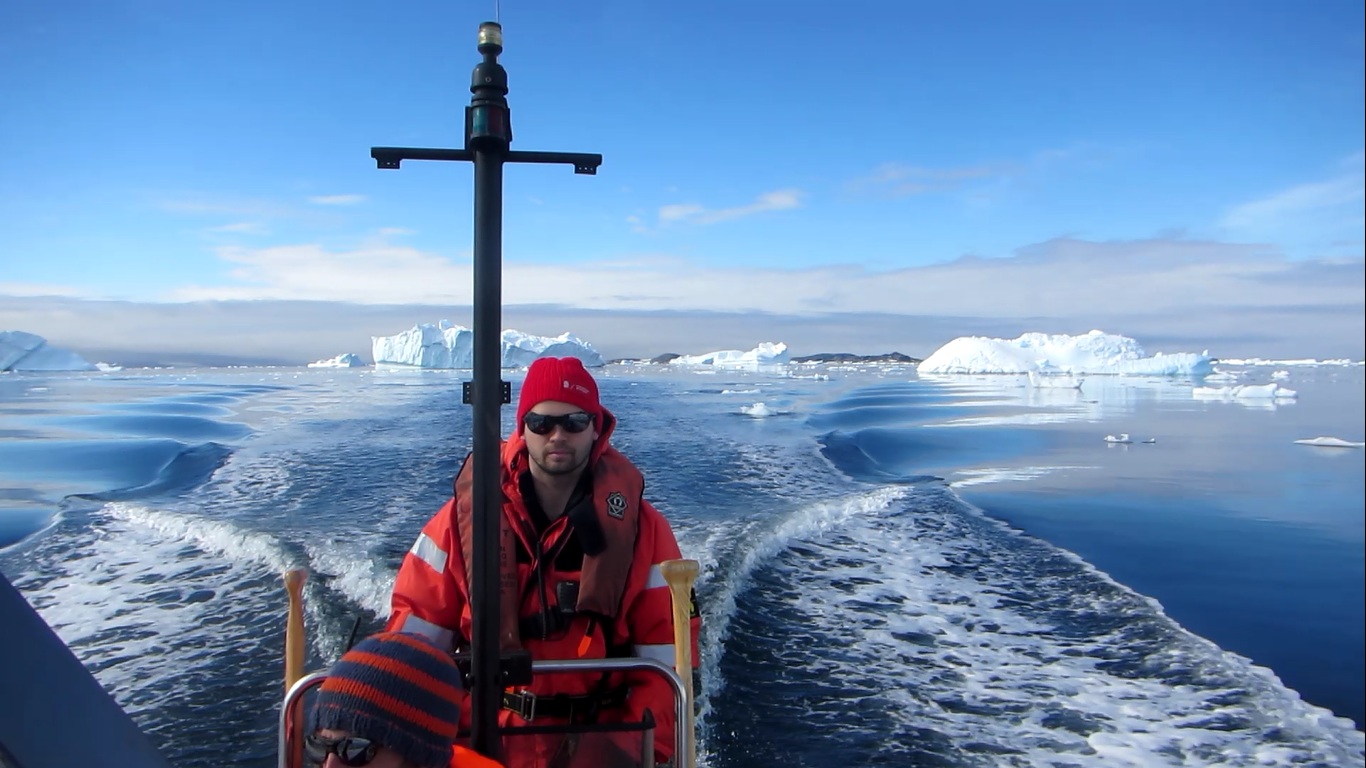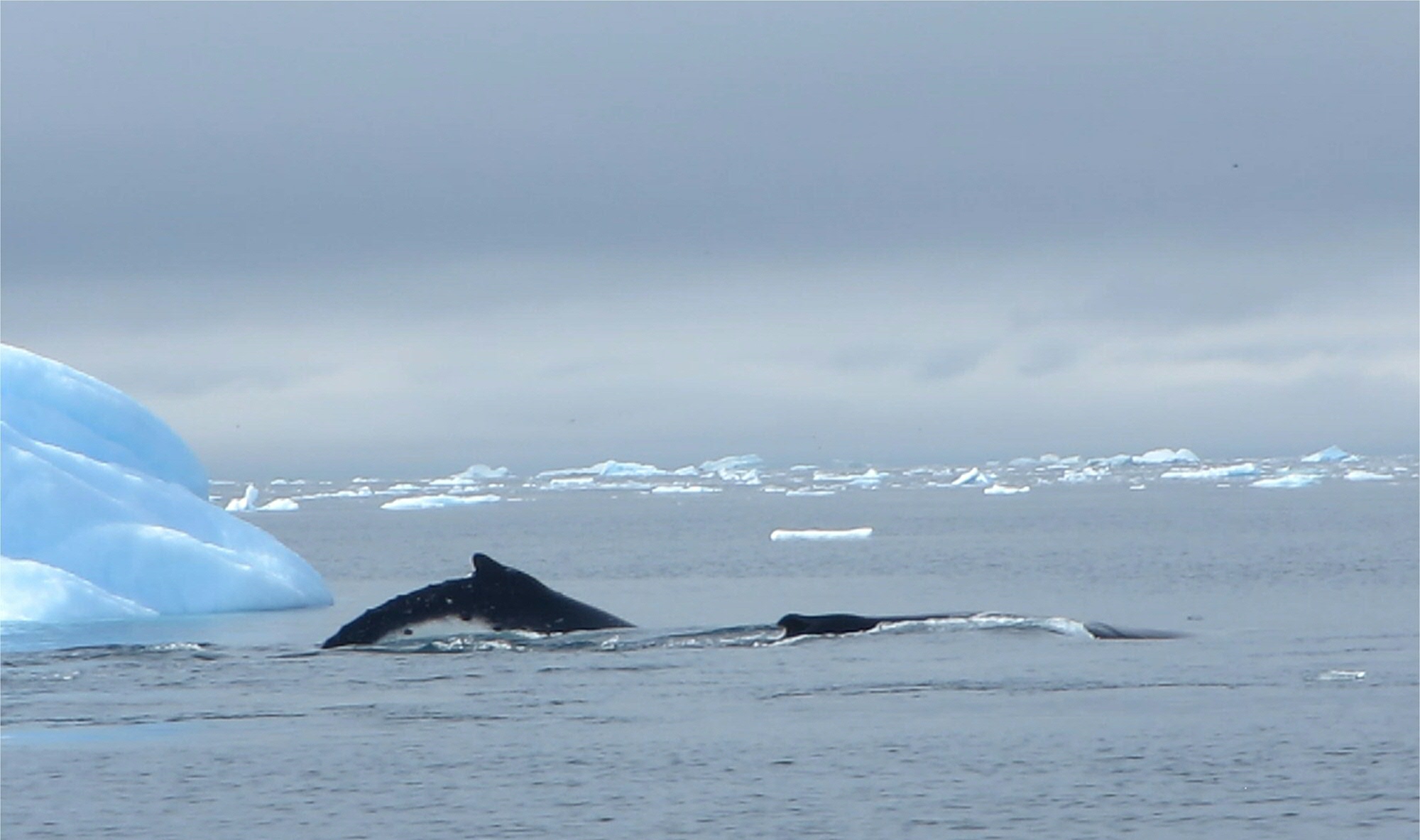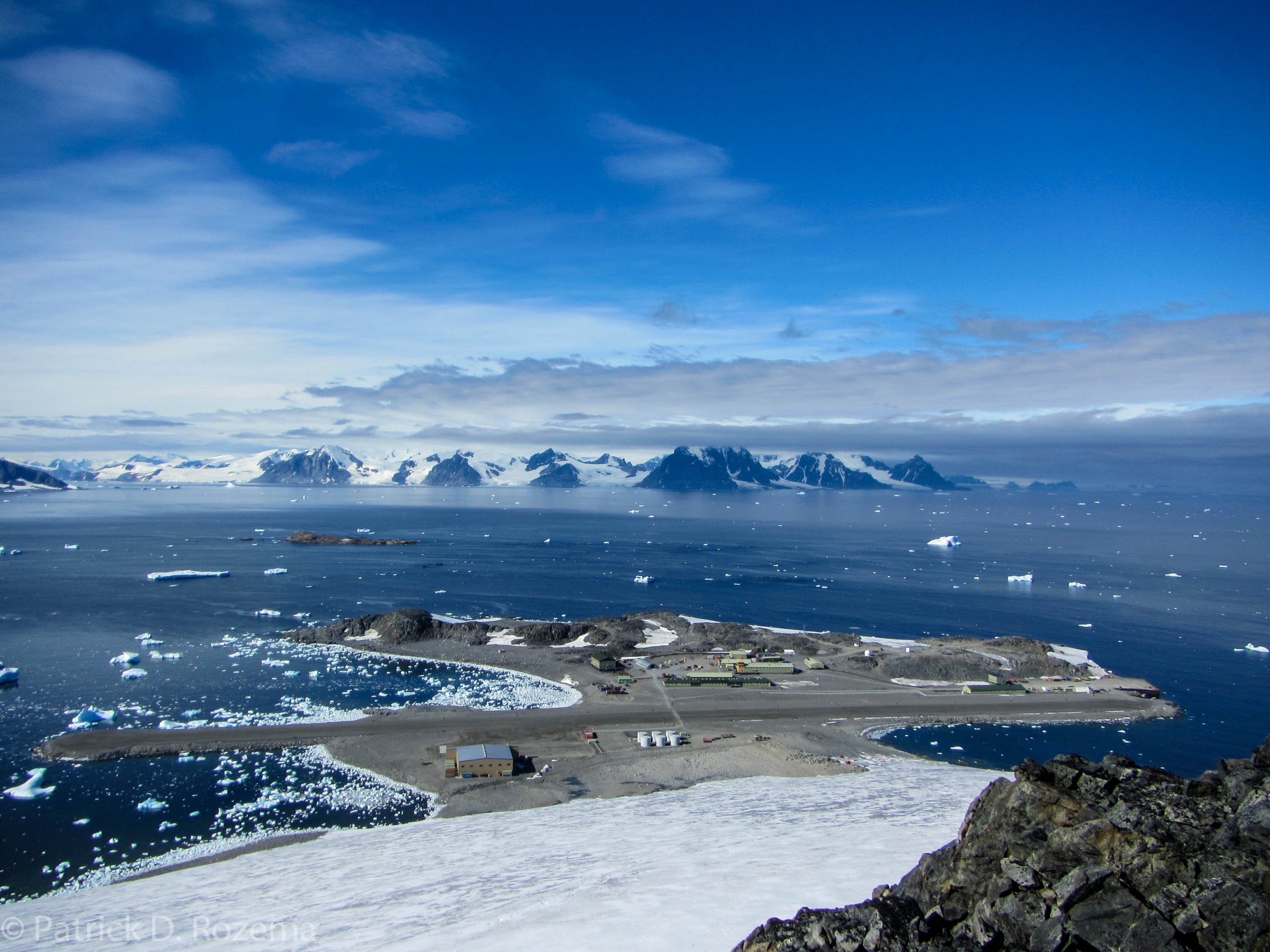Marine life changes as a result of melting Antarctic ice
The composition of unicellular marine life is changing as a result of melting Antarctic sea ice. This influences the entire food chain and deep-sea carbon storage – and thus the climate. Patrick Rozema (University of Groningen) studied this phenomenon during two field seasons on Antarctica. On 1 December – Antarctica Day – he will defend his PhD thesis.

Dutch Antarctic research
Antarctica Day is the annual worldwide celebration of the Antarctic Treaty. In this treaty, signed on 1 December 1959, the signatories agreed to protect Antarctica. The Netherlands is not among the signatories. However, the treaty allows observer parties to contribute on condition that they contribute to Antarctic research. Since 2013, this is done from a Dutch-owned research lab on Antarctica: the Dirck Gerritsz Laboratory. Groningen biologist Patrick Rozema stayed there twice, for more than two months in 2013 and almost five months in 2013-2014.
‘That was a very special experience’, says Rozema, who will defend his PhD on Antarctica Day. ‘The first time was well into the summer, but the second time there was still a lot of sea ice and snow 2.5 metres high. We had all kinds of weather, from clear blue skies to endless grey clouds and snowstorms. On average, the temperature was about 4 degrees, which was higher than in the Netherlands at the time’.
Different ecotypes
Rozema investigated unicellular algae and bacteria in the seas around Antarctica. These microorganisms form the basis for the entire Antarctic food chain. The algae store sunlight in the form of biomass and are eaten by krill, the small crustaceans that are the staple food of penguins and whales. The bacteria break down dead algae, thus ensuring that nutrients are recycled. ‘There are at least a thousand species of organisms involved’, says Rozema. ‘I have discovered, however, that there are also major differences within species. Many species have genetically different “ecotypes”, living at different locations and peaking over different periods. This means that they play different roles in the ecosystem, something which researchers have not taken into account so far’.
Less sea ice, fewer diatoms
In years with less sea ice, the wind can mix the various layers of seawater more thoroughly. ‘Algae will absorb less sunlight if this is the case’, explains Rozema, ‘because this mixing means that they spend more time in deeper, darker layers’. This causes them to grow more slowly, resulting in less food for krill and other algae-eating species. This affects the entire food chain.
Not only are there fewer algae when there is less sea ice, their species composition changes too. The less sea ice, the more small unicellular algae with a tail (flagellates) and the fewer diatoms. ‘Particularly those diatoms are an important food source for krill’, says Rozema. ‘They also bind a lot of carbon. When they die, they sink to the bottom, removing the carbon from the system for a longer period’. This is important for the global carbon balance and thus for climate change. Flagellates do not have this role. A shift in balance between diatoms and flagellates can therefore affect the climate.

Killer whales circling the boat
Fieldwork in the Antarctic was exciting. Weather permitting, Rozema and his colleagues went out into the bay in their zodiac every day. ‘We would go to various places to take water samples’, he explains, ‘for example near the edge of the glacier or in deeper waters. We always wore thick survival suits. Rain or snow didn’t bother us. Only if the winds were too high, we stayed in’.
Rozema also experienced days on which the water was like a sheet of glass and humpback whales and marine birds fished for krill close to their boat. ‘One time, we were visited by a pod of killer whales, who were really just curious about us. They looked into the boat and blew bubbles. That is something I will never forget’.
More information:
- Patrick Rozema will defend his PhD thesis on 1 December 2017 at the University of Groningen. His primary supervisor is Prof. A.G.J. (Anita) Buma, Ocean Ecosystems — Energy and Sustainability Research Institute Groningen .
- His thesis can be downloaded here.
- Contact: Patrick Rozema
- Photos: © Patrick Rozema

More news
-
17 February 2026
The long search for new physics
-
10 February 2026
Why only a small number of planets are suitable for life
